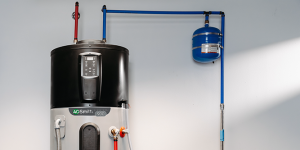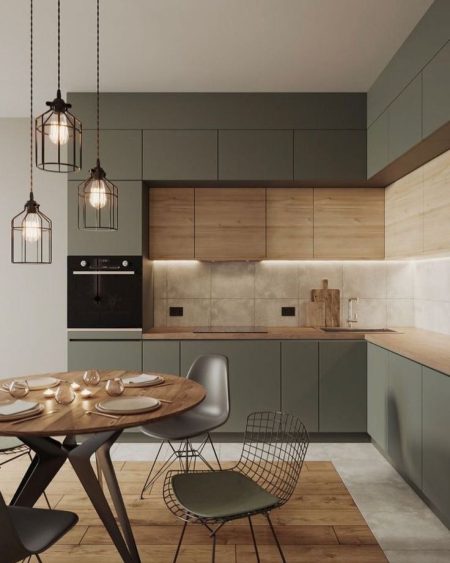What are grants for homeowners?
We all know about home buyer grants for down payment and closing cost help. But what about grants for homeowners? Do they even exist?
You bet! Indeed, homeowners have more than 5,000 programs at their disposal that can provide grants, incentives, programs and rebates.
Of course, grants for homeowners aren’t available to everyone. Many programs can only help those on low incomes, older borrowers or service members. But some are open to all homeowners, they just need to meet the eligibility criteria.
What are the different kinds of grants for homeowners?
With 5,000+ programs, it’s impossible to provide a comprehensive list but millions of homeowners may be eligible for help. Most of these fall into one of several broad categories:
Low income
- Home improvement grants — Offered by federal, state, county or city agencies. Intended to help those on low incomes with essential upgrades or repairs. Call your local Housing and Urban Development (HUD) office
- The Section 504 Home Repair Program is similar to the home improvement grants program. But it’s for people on very low incomes in rural areas who can’t get other financing. While most assistance comes as low-interest loans, applicants age 62+ years may get grants
Not your fault
Special groups
- Tribal — The Housing Improvement Program (HIP) is a home repair, renovation, replacement and new housing grant program administered by the Bureau of Indian Affairs (BIA).
- Military — Veterans and service members with certain service-connected disabilities are entitled to homeowners’ assistance (up to $109,986 for FY 2023) from the VA. This must be used to adapt the home to their special needs
- Older Americans — Find your local Area Agency on Aging office by clicking that link or calling 1-800-677-1116. Because they may be able to help with repairs, weatherization, energy assistance and so on
For the public good
- Energy efficiency — The Office of Energy Efficiency & Renewable Energy offers “financial incentives and assistance for energy efficient and renewable energy products and improvements in the form of rebates, tax credits, or financing programs.” And you may find other state or local programs. For example, California offers tax credits and rebates to help with installing solar panels
From the community
- Faith-based help — Some churches and other faith groups provide assistance to needy homeowners within their memberships and in the wider community
Who qualifies for them?
With 5,000+ programs, we can’t just lay out a single set of criteria that will tell you whether you’re in line for help. After all, each can set its own rules.
But we can tell you that most programs are limited to those on low incomes who need essential repairs and improvements to make their homes more safe, accessible and comfortable. So, billionaires wanting a second pool at one of their mansions need not apply.
Federal programs tend to use the HUD-adjusted area median income (AMI) as a baseline for measuring income. You can find yours for your area on HUD’s website.
Home improvement grants require an income of 60% or less of the average for your area. And Section 504 sets the bar even lower at 50%.
But even that rule doesn’t apply to all federal programs. The BIA’s Housing Improvement Program says applicants must have an income that does not exceed 150% of the DHHS Poverty Guidelines. And, of course, many energy efficiency grants aren’t based on income at all.
Meanwhile, private sources of help from, say, faith-based groups may make decisions based on perceived need rather than income.
How to apply for a homeowner grant
We provided links to the major programs in our list (above). And those websites should provide you with the information you need to decide whether you’re likely to be eligible for help.
However, don’t hesitate to call the numbers provided if you’re unsure about anything. They’re there to help.
Helpful information on grants for homeowners
When we did an online search on this topic, we soon found a couple of websites promising to establish your eligibility and help with your application. But both these were for-profit companies. And we were unsure how they funded themselves.
So, if you use them, proceed with caution. They may push you toward particular contractors or charge you for their work.
You shouldn’t have to pay to apply for federally funded assistance. But be aware that funding may not always be immediately available. Once a budget has run dry, you may be put on a waiting list until it’s your turn to access new money.
What to do if you don’t qualify for homeowner grants
Not everyone qualifies for homeowner grants, nor should they: Federal funds aren’t made to be available to those who don’t really need them.
Let’s assume your credit score isn’t terrible and you’ve built up plenty of “equity” (the amount by which the market value of your home exceeds your mortgage balance).
Then you’re very likely to be able to borrow at low rates to make the repairs and improvements you want. Indeed, talk to your tax professional because the interest on your loan may be deductible. Just note that only money you can show you’ve spent on home improvements gets that deduction.
Two main loan types
Those low rates and that deduction are typically available when you choose one of two types of second mortgages. They’re a:
- Home equity loan — Borrow a lump sum, usually at a fixed rate. And repay it over an agreed period in equal monthly installments. That makes these straightforward and easy to budget for
- Home equity line of credit (HELOC) — HELOCs work similarly to credit cards. You can borrow, repay and borrow again as often as you like up to your credit limit. And you pay (usually variable) interest only on your balance. But HELOCs are more complicated than that. So, click that link for the full story
If you want to improve your home, it usually makes sense to use your home equity to do so.
The bottom line
It can feel as if homeowners are left to sink or swim once they’ve bought their property. But any homeowner on a low enough income can apply for grants or other assistance. And there’s a good chance they’ll get the help they need.
Homeowners grants come in a wide variety of flavors, and, in turn, so do their income requirements. Check carefully to see the programs you might be eligible for.
And if you don’t qualify for any homeowner grants, you’ll likely be able to borrow the funds you need through a home equity loan or HELOC.
Read the full article here














